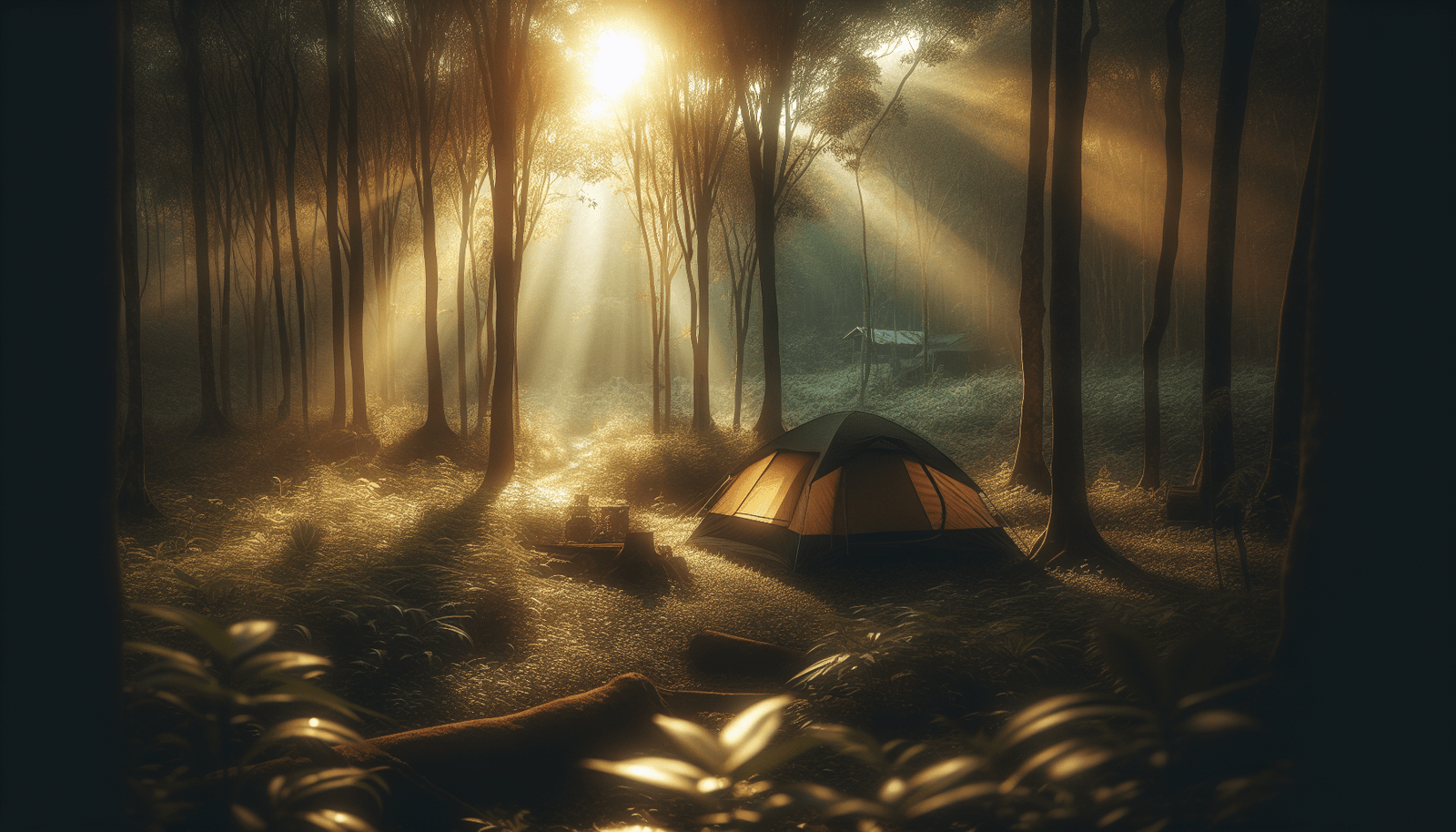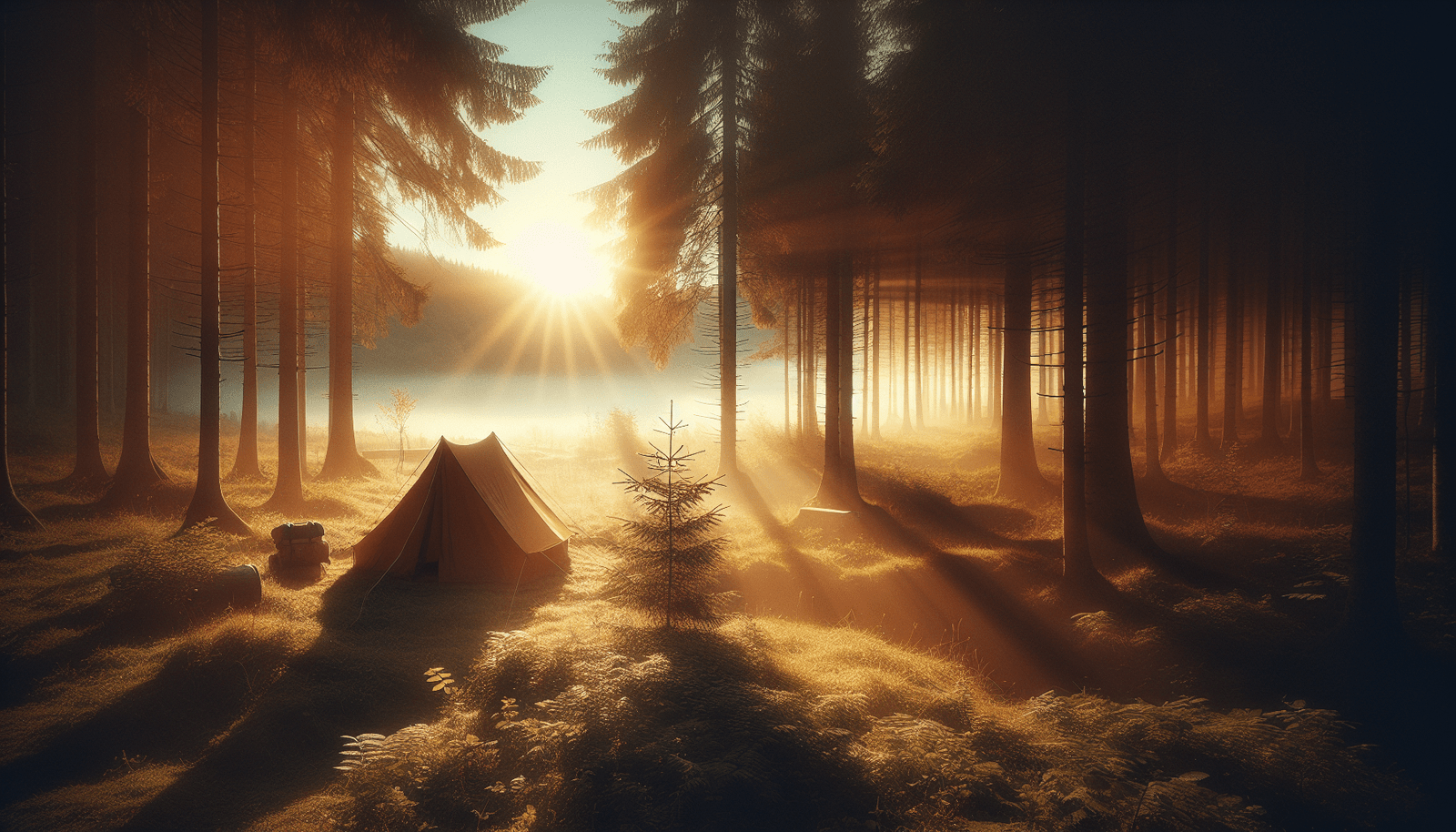In “What Is The Most Basic Type Of Camping?”, you’ll embark on a journey to discover the simplest and purest form of camping. Stripping away the luxuries and modern conveniences, the article delves into the essence of traditional camping. You’ll explore how reconnecting with nature and relying on fundamental survival skills can create a more authentic and rewarding outdoor experience. From pitching a basic tent to cooking over an open fire, this guide will inspire you to embrace the minimalist approach and truly immerse yourself in the great outdoors.
What Is The Most Basic Type of Camping?
Have you ever wondered what the most basic type of camping is? If so, you’re in the right place! Let’s explore this question in-depth and find out everything you need to know about the simplest form of this outdoor adventure.
Understanding Camping Basics
Before diving into the most basic type of camping, it’s important to understand what camping generally entails. At its core, camping is about spending time outdoors, usually involving overnight stays away from the comforts of home. The experience can range from the luxurious (glamping) to the primitive and everything else in between.
Traditional Camping
Traditional camping typically involves:
- Setting up a tent
- Cooking over a campfire or portable stove
- Sleeping in sleeping bags
This approach allows you to connect with nature, enjoy fresh air, and experience the tranquility of the outdoors.
The Essence of Basic Camping
Basic camping, often referred to as “back-to-basics” camping, involves the simplest and least complicated form of camping. This type focuses on the essentials and minimalism.
Defining Basic Camping
In basic camping, the goal is to embrace simplicity:
- Minimal gear
- Rudimentary shelter
- Elementary cooking methods
Components of Basic Camping
Let’s examine these three components in detail.
Minimal Gear
When it comes to minimal gear, you’re looking at the bare necessities. Here’s a quick rundown:
| Gear | Description |
|---|---|
| Tent or Tarp | A simple shelter to protect from the elements. |
| Sleeping Bag | A lightweight option suitable for the climate. |
| Backpack | To carry essentials like food and water. |
| Basic Cooking Equipment | A small pot, a portable stove, or even the ability to cook over an open fire. |
| First Aid Kit | A must-have for any outdoor adventure. |
Minimal gear ensures you have what you need without carrying unnecessary items.
Rudimentary Shelter
A shelter is crucial for staying protected from the weather and critters. In the most basic forms, this often means a small tent or even a tarp that can be easily set up with some rope and stakes.
Elementary Cooking Methods
Forget the camping gadgets and fancy cooking equipment. Basic camping means cooking over an open fire or using a small, portable stove. Think about simple meals that require minimal preparation and can be easily cooked in one pot.
Why Choose Basic Camping?
You might be wondering why anyone would choose such a straightforward and minimalistic approach.
Connecting with Nature
Basic camping gets you closer to nature. Without the distractions of modern conveniences, you can focus on the sights, sounds, and smells of the great outdoors.
Simplified Experience
A streamlined camping experience means less planning and packing, making it easier to go off the beaten path and explore less trodden trails.
Cost-Effective
Basic camping is cost-effective as it requires minimal gear, allowing you to focus on experiences rather than expenses.

Preparing for Basic Camping
Now that you understand what basic camping is, let’s talk about how to prepare for it.
Choosing the Right Location
Picking the right spot is crucial. Look for places that offer the natural beauty and tranquility you desire. National parks, state parks, and established camping areas often have spots tailored for a more primitive experience.
What to Pack
Here’s a simple checklist to ensure you’re prepared without overpacking:
| Item | Purpose |
|---|---|
| Lightweight Tent or Tarp | Shelter |
| Sleeping Bag & Sleeping Pad | Comfort and warmth |
| Cooking Gear (Pot, Stove, Utensils) | Food preparation |
| Food & Water | Nutritional needs |
| First Aid Kit | Safety |
| Multi-tool | Utility |
| Compass & Map | Navigation |
| Firestarter (matches, lighter) | Cooking and warmth |
Planning Your Meals
When it comes to food, simplicity is the key. Plan easy-to-make meals that require minimal ingredients and equipment. Some ideas include:
- Instant oatmeal for breakfast
- Sandwiches or wraps for lunch
- One-pot pasta or stew for dinner
Don’t forget to bring energy-boosting snacks like trail mix and granola bars.
Essentials for Safety
Safety should never be overlooked. Make sure you have a first aid kit and know basic first aid procedures. Carry a map and compass, and know how to use them in case your phone’s GPS fails. Always tell someone your plans and expected return time.
During the Camping Trip
Once you’re ready and set out for your camping adventure, here’s what to focus on while you’re out there.
Setting Up Camp
When you arrive at your location, choose a site that’s flat and free of rocks or debris. Set up your shelter, making sure it’s secure and protected from wind and rain.
Making a Fire
If the location allows it, cooking over an open fire can be part of the experience. Make sure to:
- Gather dry wood and kindling.
- Use a fire ring or pit if available.
- Never leave the fire unattended.
Enjoying the Simplicity
The beauty of basic camping lies in its simplicity. Take time to enjoy your surroundings:
- Go for a hike.
- Sit by the fire and stargaze.
- Listen to the sounds of nature.
Leave No Trace
Always follow Leave No Trace principles:
- Plan ahead and prepare.
- Travel and camp on durable surfaces.
- Dispose of waste properly.
- Leave what you find.
- Minimize campfire impacts.
- Respect wildlife.
- Be considerate of other visitors.

Challenges of Basic Camping
While basic camping is rewarding, it does come with challenges.
Weather
The weather can be unpredictable. Always check the forecast and prepare for changes by packing appropriate clothing and gear.
Limited Resources
No luxurious amenities here. This means:
- You’ll need to purify your own water if none is available.
- Food options might be limited to what you can carry and easily cook.
- Hygiene needs to be managed without running water.
Wildlife
While it’s exciting to be in nature, remember you are a guest in the animals’ home. Store food properly to avoid attracting wildlife, and always keep a safe distance.
Wrapping Up: The Joy of Basic Camping
In conclusion, the most basic type of camping strips the experience down to its essentials, allowing for a deep and genuine connection with nature. While it requires meticulous preparation and brings its own set of challenges, the rewards are plentiful.
Embrace simplicity, enjoy the tiny moments, and immerse yourself fully in the beauty of the great outdoors. You might just find that the basic way is the most fulfilling way to camp. Happy camping!
